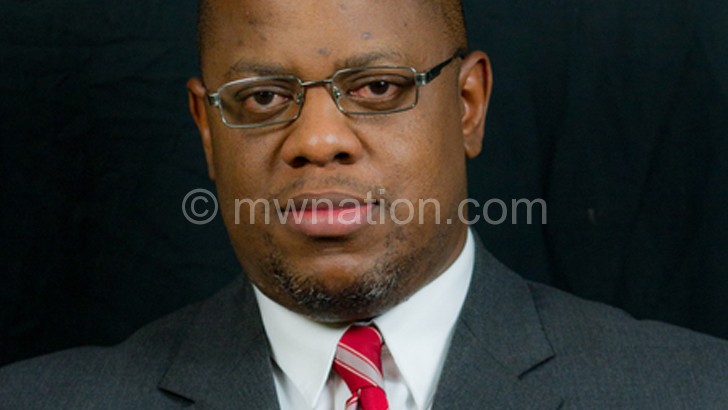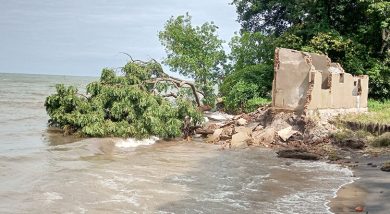Don’t politicise Corruption—ACB
Amid surveys showing rising corruption perceptions and scandals, the Anti-Corruption Bureau (ACB) has accused politicians of abusing the term ‘corruption’ to soil rivals’ images.
ACB director-general Lucas Kondowe was speaking in Lilongwe yesterday when the Bureau met the Legal Affairs Committee of Parliament to discuss Vote 510, which allocates funding to the graft-busting body.

“We [ACB] are aware of the perception of ACB being used as a tool to oppress the opposition. But this is just mere perception. We are professionals and we carry out our duties professionally.
“It is just sad that everyone wants to politicise the term corruption for personal gains without providing proper evidence which in turn comes back to us as being incapable of following the alleged issues,” he said.
Kondowe was responding to a question from Mzimba Hora member of Parliament (MP) Christopher Mzomera Ngwira who sought an explanation on why the ACB usually prosecutes politicians, especially those from the opposition.
Said Ngwira: “Why is it that the Bureau prosecutes only those politicians in the opposition and not the ones in government?”
But Kondowe insisted the sentiments were mere public perceptions, saying the Bureau gives fair treatment to all suspects.
He said the perceptions that ACB shields people in government has put the graft-busting body in an awkward position and prompted some donors to reduce their funding to the body.
In the proposed 2017/18 National Budget set to roll out on July 1 after Parliament approval, the ACB has a proposed allocation of K3.1 billion, which is K1 billion more than its share of the 2016/17 National Budget expiring this June 30.
But Kondowe told the meeting that people should not expect the extra K1 billion to work wonders as the Bureau still faces several other challenges.
He said: “We need to be cautious with the increased allocation and people should not think that all is well. From the added amount, we expect to purchase motor vehicles at K350 million and K61 million will be used to service and maintain the old vehicles.”
In the 2016/17 fiscal year, the Bureau failed to carry out external investigations on some Cashgate cases due to lack of resources, use of old vehicles and operating in rented premises which take up a bigger share of its budget at K158 million, representing 16 percent of its other recurrent transactions, among other expenditures.
“We also have a big challenge of staff turnover which affects our operations. We cannot stop them from finding greener pastures if we can’t provide what they want,” he said.
Legal Affairs Committee chairperson Maxwell Thyolera expressed his committee’s satisfaction with the presentation from the ACB, pledging support for the vote to be passed in Parliament.
He said: “From the explanation we had from the Bureau, we have now understood what they are passing through and we promise our support to their vote so that they carry their job diligently.”
Malawi’s fight against corruption has generally been faulted as moving at a snail’s pace and sparing “sacred cows”.
In April this year, during the National Anti-Corruption Conference in Lilongwe, the European Union also called for speedy investigation and prosecution of corruption cases involving high-profile personalities, especially those connected to Cashgate—the plunder of public resources at Capital Hill.
Representing development partners at the conference, EU Head of Delegation Marchel Gerrmann did not mention specific high-profile cases that have moved at a snail’s pace, but at the back of the minds of the participants to the conference were the K1.7 billion case involving former president Bakili Muluzi, the so-called Maizegate in which former Minister of Agriculture, Irrigation and Water Development George Chaponda was named and the K3.6 billion Cashgate case involving former Ministry of Finance budget director Paul Mphwiyo and 18 others.
Gerrmann also said it was the donors’ recommendation that institutions such as the ACB and the Directorate of Public Prosecutions (DPP) should be made more independent and better resourced.
Recently, Transparency International—the worldwide anti-corruption watchdog—rated Malawi as slowing down in its fight against graft. The Open Society Initiative for Southern Africa (Osisa) and others, including a Nation Publications Limited survey, also painted a dark picture of the graft fight. n






Mr Kondowe or Kondoole whatever they call you, do not try to patronise Malawians, its not like Malawians are stupid……its not like we think that the ACB is selective in its operations, the bottom line is that we know that the ACB is selective……….as they say the proof is in the pudding..
Ntchito za manja a ACB zikuoneka and that’s where the perception of the people as you call it, is coming from. Its not like people are dreaming about it………….